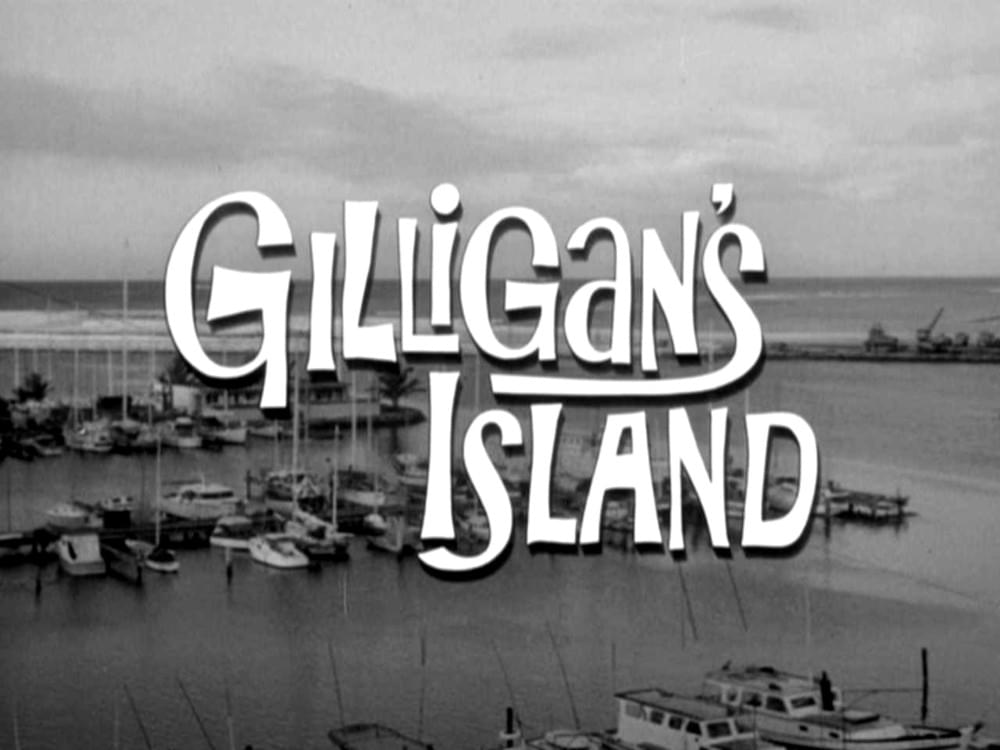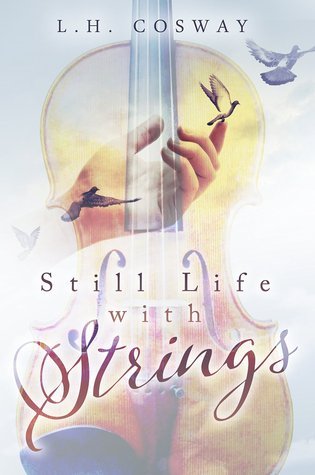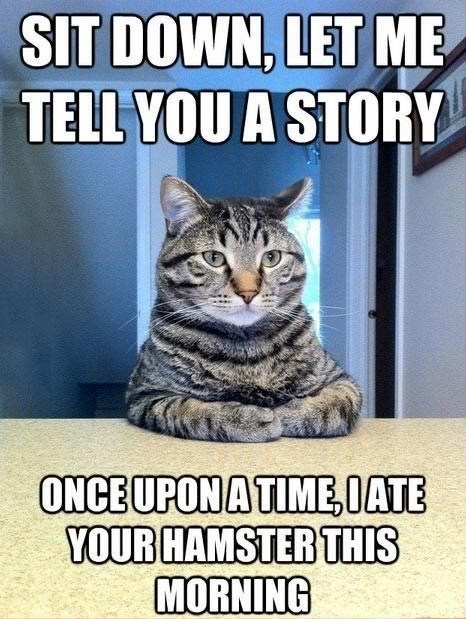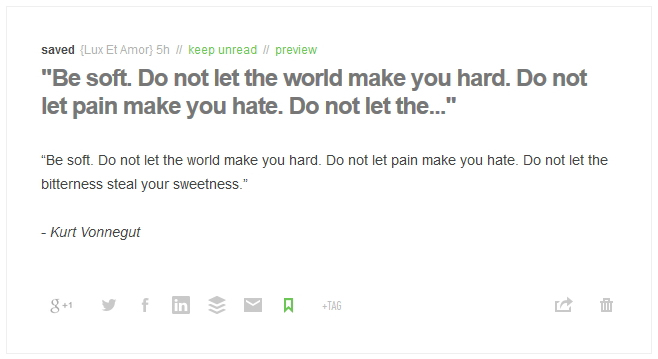Fiction has many purposes. Entertainment, education, enlightenment, and learning empathy are the big four I can think of right now. Good fiction should do all these things, sometimes without your notice. As you learn and grow, the lessons may get more subtle. Maybe the book is just brain candy,1 meant solely to entertain, and author didn’t mean to do anything Read more
books
No man is an island

Entire of itself,
Every man is a piece of the continent,
A part of the main.
If a clod be washed away by the sea,
Europe is the less.
As well as if a promontory were.
As well as if a manor of thy friend’s
Or of thine own were:
Any man’s death diminishes me,
Because I am involved in mankind,
And therefore never send to know for whom the bell tolls;
It tolls for thee.
De gustibus non est disputandum

The Clinch™, starring Fabio and whoever the girl is, I don’t know.
While that is true, in general, women’s art is seen with some disdain regardless of what it is, how well it’s done, or in what cultural/societal conditions it’s made, I’ll save you the feminist rant. For now. You’re welcome. Read more
Premeditatio malorum (or, borrowing trouble)
A Musing:
A lot of things really bad and really good have happened around Chez Moriah the last couple of years. One of the good things is that XX tax deduction has learned how to drive and is getting out and about on her own. She works only a few minutes away, so we got used to her driving to work and back. But she has an internship 20 minutes away from home, all freeway, heavily trafficked, and sometimes very windy. Today was her first day driving it by herself, and I am nervous and scared. Read more
Book Review: Still Life with Strings
 Review policy: I only post reviews on my blog for books I feel strongly about, good or bad.
Review policy: I only post reviews on my blog for books I feel strongly about, good or bad.
Title: STILL LIFE WITH STRINGS
Author: L.H. Cosway Read more
Musings on the “placeholder” heroine

I.
Except for those little moments relieved by the occasional huge moment, everyday life can be a drudgery. Whatever you are engaged in, be it work (no matter how glamorous or lucrative it is) or raising a family or fulfilling your calling at church or attaining some long-held goal (usually all of them at once), at some point, you’ll find yourself slogging through it and wondering where the magic is. Read more
On reading – links roundup
One day I saw somebody say, “Links roundups are lame.” Well, I like them, but I have minority opinions more often than not. You know what? Fuck that. I like ’em and this is my blog.
Is ‘devouring’ books a sign of superficiality in a reader? Amongst romance readers, of course, this question is fightin’ words.
The perfect bookstore v.3
Eight years ago. EIGHT. 8!!!
I wrote this: The Perfect Bookstore.
The little things that do not show
“All day I did the little things, the little things that do not show; I brought the kindling for the fire, I put the candles in a row, I filled a bowl with marigolds, the shallow bowl you love the best—and made the house a pleasant place where weariness might take its rest.”
—Blanche Bane Kuder
“The Blue Bowl”
Blogging again
You may have noticed.
I have some things on my mind I’ve wanted to discuss, but my attention span these days is pretty rotten. I’ve been tweeting (and then Facebooking) way too long to be able to put a small essay together in a coherent fashion. Read more
No.
The making of Dunham
And so begins a post (or series of them) (you know how wishy-washy I am) on Dunham, the privateer-heroine and pirate-hero Revolutionary War swashbuckler, which, for those of you not following the serial, will be available for sale JULY 4, 2013.
To kick it off, here’s the final cover for the official book: Read more
Of artists and assholes
 Orson Scott Card doesn’t make a hill of beans’ worth of difference to me. I never read him until I was an adult (and haven’t read Ender’s Game), I was underwhelmed with the Alvin Maker series, and aside from his strong views on homosexuality, he has some other truly whacko ideas that also thoroughly and completely offend my libertarian sensibilities.
Orson Scott Card doesn’t make a hill of beans’ worth of difference to me. I never read him until I was an adult (and haven’t read Ender’s Game), I was underwhelmed with the Alvin Maker series, and aside from his strong views on homosexuality, he has some other truly whacko ideas that also thoroughly and completely offend my libertarian sensibilities.
I weighed in on the controversy over his short story “Hamlet’s Father” because I can’t stand it when people rant about books they haven’t read. That is intellectually dishonest, and the people I saw doing this promote themselves as intellectually honest. Sorry, nope. Get off your fucking high horse and read the fucking book, then come back and talk to me. Read more
Creepy collective consciousness is creepy
It appears I’m not the only writer with her knickers in a twist over The Book That Shall Not Be Named, and not only that, but it appears the writerly collective conscious had gotten its knockers knickers in a twist somewhere between Sunday night and Monday morning. Usually when the twist in my knickers gets too tight, I simply avoid the source. In this case, I can’t. It’s everywhere, including my snail mail box after my 70-year-old aunt in Salt Lake took the time to cut an article on it from Deseret News and drop it in the mail to me. I can’t get away from it.
Between this and the incessant banging on the marketing drum, I’ve pretty much had all I can take of the business side of being a writer. (Note: Being a publisher is an entirely different thing.) Read more
The gatekeepers, part 2
The perfect bookstore: Decadence
Fiction takes you places
 A fan I tweet with regularly told me my books mess with her head and take her places she doesn’t want to go, but she goes there anyway.
A fan I tweet with regularly told me my books mess with her head and take her places she doesn’t want to go, but she goes there anyway.
I regularly hear the arguments that reading fiction can teach you empathy or give you a peek into someone else’s world. In other words, fiction is good for you. Like eating your vegetables is good for you. Read more
Reviewing too close to home
I wrote on this topic two months ago.
I still don’t know what to do, but I’m losing my patience because I discovered that writers of some of the stuff that’s really bad are giving writing advice. Oy. Stop it. You’re not qualified to give writing advice. Really.1
In light of this post and this comment, Read more
NetGalley
For whatever reason, NetGalley has decided to start putting tighter restrictions implemented publishers’ tightening of restrictions on who gets free eARCs (electronic Advanced Reader Copies).
So what.
Here’s the thing: NetGalley charges what is, to me, a micropress, an astronomical amount of money to give away books. That’s right: I would be paying to give my product to people in exchange for … very little in the way of a quantifiable return.
NetGalley is not in business to lose money. It’s in business to make money by providing a publishers’ colony. However publishers decide to define their ROI (return on investment) is how NetGalley’s going to be bringing in the money.
Follow the money.
When all other explanations fail, just follow the money.
Printgasm BINGO
I totally don’t blame Scalzi for being sick of the arguments for self/digital publishing. I self/digital publish and I’m sick of the evangelizing, too. (Because most of the arguments are just shitty logic.)
HOWEVER.
There’s another side of the Electronic Publishing BINGO card: Printgasm BINGO, for those who believe that reading ebooks is just one step away from civilization sliding back into the primordial ooze.
![“Printgasm” BINGO card. Text: “B1: I can dog-ear the pages. B2 [in various colors]: I can highlight passages in books in color. B3: I can write margin notes in a book. B4: I can put a Post-It note in a book. B5: I can use pretty bookmarks. I1: I like the feel of a book. I2: I like the smell of a book. I3: Books are prettier than electronic files. I4: I can show off the cover to strangers. I5: I can look at books on shelves. N1: I can read books in the bookstore while I drink my coffee. N2: You’ll pry my print books from my cold, dead hands! N3: I’ve never read an ebook, but I hate them. Nya nya nya. HATE! N4: I like to see the books in my TBR stack. N5: I don’t need a machine to read books. G1: Books keep printers employed. G2: I can buy books used. G3: I can re-sell my books. G4: I can lend a book. G5: Books don’t have DRM. O1: I can burn a book for emergency fuel. O2: I can take a book to the beach. O3: I can use pages for emergency toilet paper. O4: I can read a book in the bathtub. O5: Books won’t break if dropped or sat on.](https://moriahjovan.com/talesofdunham/wp-content/uploads/2011/03/20110321_bingocard-scaled.jpg)


 There’s a
There’s a